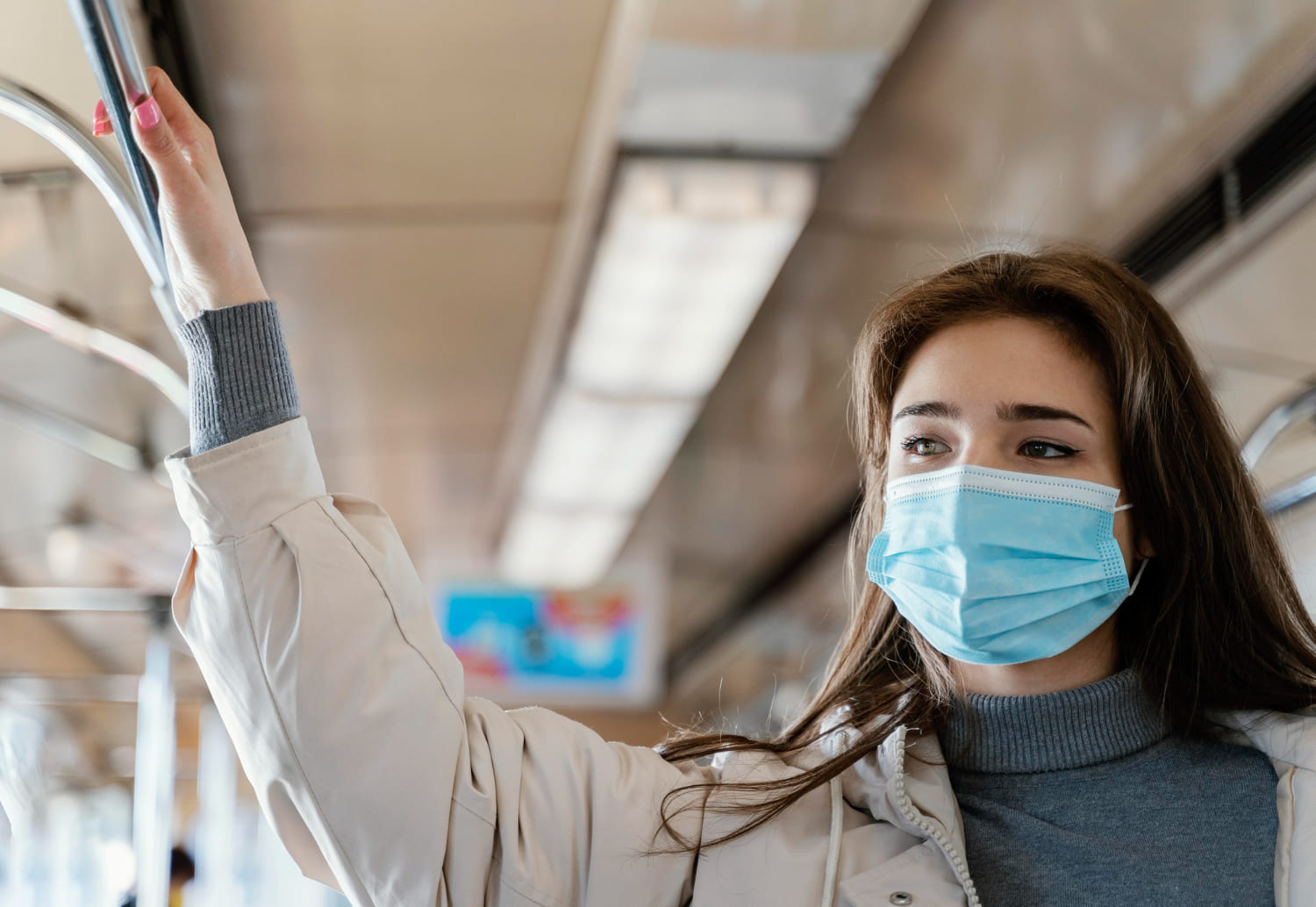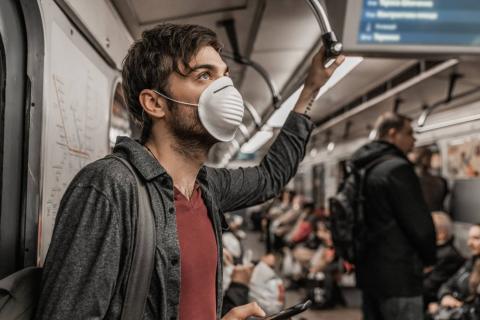Reaction to the possible withdrawal of mandatory face masks on public transport next week
In the last few days, several media have published that the end of the obligatory use of face masks in public transport is near. According to today's Vozpópuli, the Alerts Committee is expected to approve the change from compulsory to recommended use next week.

Pedro Gullón - mascarillas transporte VP
Pedro Gullón
Social epidemiologist and doctor specialising in preventive medicine and public health at the University of Alcalá
In general, the use of facemasks on public transport is a non-pharmacological measure with a very small effect when used alone. In other words, in the situation in Spain, where there were practically no other non-pharmacological measures in place at the moment, it did not make sense to keep masks on public transport.
This does not mean that it will never be necessary again, but for it to be effective, it must be accompanied by and be coherent with both the epidemiological situation and the other measures being taken. In this sense, it is important that contagion mitigation measures are thought of in a public health context and this means that the measures are socially accepted (effectiveness is even lower if people do not wear masks), coherent with the rest of the measures ("I have to wear a mask in the metro but I am in a crowded event closed for hours without any control") and that they understand the messages they convey.
In relation to the latter, we cannot forget that one of the biggest public health challenges in the coming years is climate change and, when the only place with masks is public transport, an image is generated that it is the only place with a high risk of contagion, something that is not supported by the data. This may discourage its use, with negative consequences for public health.
Salvador Peiró - mascarillas transporte público
Salvador Peiró
Epidemiologist, researcher in the Health Services and Pharmacoepidemiology Research Area of the Foundation for the Promotion of Health and Biomedical Research of the Valencian Community (FISABIO) and Director of Gaceta Sanitaria, the scientific journal of the Spanish Society of Public Health and Health Administration (SESPAS)
Spain has a highly vaccinated and highly infected population, and covid-19 incidence is expected to remain stable in the coming months, showing some level of transmission (which could increase if new variants displace the current ones) but with limited impact on hospitalisation and ICUs. In fact, after last summer's surge, all covid monitoring parameters are very stable, and have not been particularly affected by interactions at Christmas and New Year's Eve (up to 6 million people spent New Year's Eve in entertainment venues).
In this context, and for several weeks now, it was not expected that the use of masks exclusively on public transport would have a relevant impact on transmission or hospitalisation, so it was reasonable to withdraw this restriction, which had already been done in most European countries.
Given that the Ministry created great concern with the outbreak in China, including for some control measures at airports, it was also expected that they would show some consistency by prolonging the mandatory use of facemasks (it would have made little sense to take contradictory measures at the same time). It is to be expected that the announcement of the withdrawal of this measure in Germany, the only major EU country that still maintained it, left Spain in an awkward situation. Especially because a country with a high tourist industry has no interest in conveying the impression that the situation in Spain requires measures that do not exist in the rest of Europe.
For the rest, the use of masks in health centres should be maintained, and also the recommendation that people with respiratory symptoms wear a mask when they are with other people (especially when they are with elderly people or with underlying illnesses).



